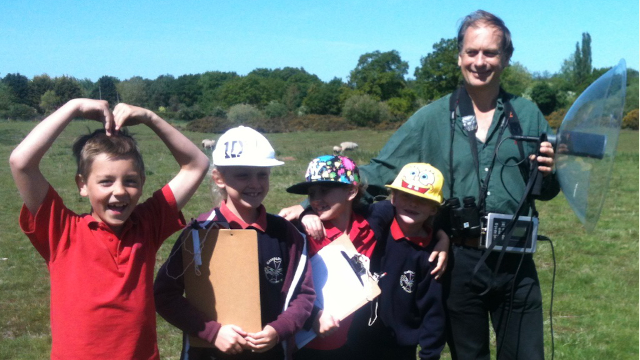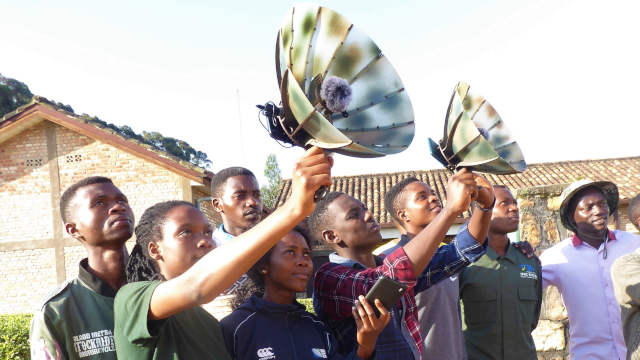Faced with the need to
protect natural capital in the face of climate change, the Planet Birdsong
Foundation promotes rigorous and enthusiastic technical capacity-building
to encourage sustainable development. We are currently supporting
citizen science and education initiatives in the UK and Rwanda and expanding
our programming into other regions of Africa.
The mobile devices people carry every day offer widespread potential for
non-specialist field-recording, which can provide valuable data for
conservationists worldwide. We are collaborating with
Time and Space
Learning to produce an affordable parabolic reflector that can be
attached to any smartphone to enable high-quality recording.
Planet Birdsong trains citizen scientists in audio-data collection,
verification, preparation and storage. Recordings can then be uploaded
to local and global datasets such as the Cornell University
eBird database, and used across the
Planet Birdsong suite of education and music tools.
Click
here to see how we are delivering this programme in
the field in Rwanda, and to
watch bioacoustic recording tutorials by our trustee Hilary MacBean.
We intend to expand our work into other regions of Africa, and extend
this programme along migration routes between Europe and Africa,
creating and exploring appropriate connections with partners at
strategic points along the way. Once this is accomplished, we will shift
from our current focus on creating bespoke local versions of products
and initiatives to disseminating global products and initiatives which
can be adapted anywhere in the world for local use.
“Planet Birdsong fits beautifully into the entire BirdLife area of
work that encompasses birds, culture and society, embracing every
aspect from the simple delight that people have in birds and their
songs, through to challenging the increasing disconnect from nature
that children (and adults) face in an urbanising world.”
-John Fanshawe, Head of Development, Birdlife International
“What a wonderful way of introducing children - and adults - to one
of the magical wonders of our planet. I will certainly want to e
ncourage my Middle East conservation colleagues to use it, especially
in Iraq, Kuwait and Yemen.” - Richard Porter, Environmental
Co-ordinator, Nature Iraq, Birdlife International


